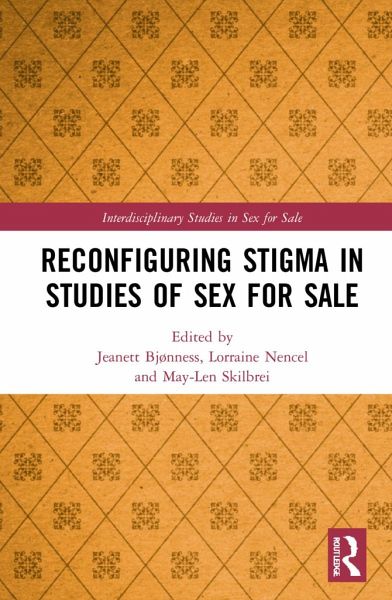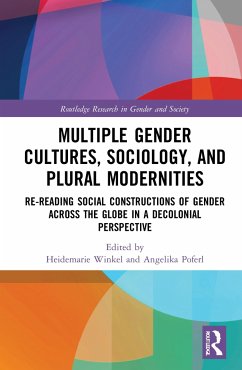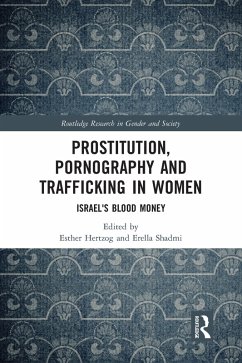
Reconfiguring Stigma in Studies of Sex for Sale
Versandkostenfrei!
Versandfertig in 6-10 Tagen
45,99 €
inkl. MwSt.
Weitere Ausgaben:

PAYBACK Punkte
23 °P sammeln!
Reconfiguring Stigma in Studies of Sex for Sale is about the production and effects of stigma in sex work or prostitution with contributions from four continents and different disciplines that taken together explore how such stigma is conditioned by differences in time, place, citizenship, gender, sexuality, class and race. Stigma is about relationships between people and also sets an interpretative frame whereby people understand and react to situations and actions, and the book is developed and organized to investigate this from various angles. It presents empirical studies that build on and...
Reconfiguring Stigma in Studies of Sex for Sale is about the production and effects of stigma in sex work or prostitution with contributions from four continents and different disciplines that taken together explore how such stigma is conditioned by differences in time, place, citizenship, gender, sexuality, class and race.
Stigma is about relationships between people and also sets an interpretative frame whereby people understand and react to situations and actions, and the book is developed and organized to investigate this from various angles. It presents empirical studies that build on and expand the scholarship on stigma and sex work. This means that it contributes to a more complex understanding of stigma in sex work studies. Further, by using the example of sew work to explore how we can best understand the production and consequences of stigma, the book makes a contribution that is relevant for all scholars who work on stigma and stigmatization.
The book is intended for academic audiences interested in sex work or prostitution, on the one hand, and stigmatization, on the other. It is also intended for students in a broad range of disciplines, as well as for practitioners and activists who encounter or work with stigmatization or stigmatized populations.
Stigma is about relationships between people and also sets an interpretative frame whereby people understand and react to situations and actions, and the book is developed and organized to investigate this from various angles. It presents empirical studies that build on and expand the scholarship on stigma and sex work. This means that it contributes to a more complex understanding of stigma in sex work studies. Further, by using the example of sew work to explore how we can best understand the production and consequences of stigma, the book makes a contribution that is relevant for all scholars who work on stigma and stigmatization.
The book is intended for academic audiences interested in sex work or prostitution, on the one hand, and stigmatization, on the other. It is also intended for students in a broad range of disciplines, as well as for practitioners and activists who encounter or work with stigmatization or stigmatized populations.














